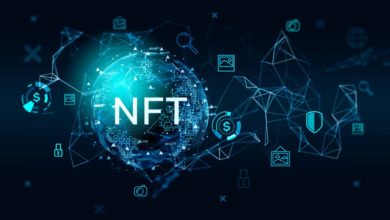WTF is an NFT and why should I care?

If you are reading this, chances are you’ve come across the term NFT. If you are like most people, you’re probably confused about why so many people seem to be obsessed with dropping tens of thousands of dollars on cartoon images that appear to be replicated by a simple screen shot.
As it turns out though, it’s not that simple. Not even close.
The term NFT means “Non-Fungible Token.” They are digital assets on a blockchain that have verified ownership to a wallet. That means that if your wallet (owned by you) owns an NFT (whatever form that takes) you are the sole verified owner of it. It’s provable, concrete, no one can take it from you unless you give it away or sell it (hackers not included!).
That being said, the existence of NFTs tends to be a confusing concept for people who may not know what they can be used for.
An example of an NFT being used in practice would be as follows:
A membership to a club is attached to an NFT. That NFT is on sale by the club itself. You buy the NFT. As the NFT holder, you now have membership to that club. You can show up to the club, show that you own the NFT, and they’ll let you in. You can either hold on to it and keep the membership for as long as you want (whatever the terms of the club are) or you can sell the NFT to someone else. If you sell that club membership NFT to someone else, that someone else now has membership to that club.
NFTs can also take the form of digital assets in video games, a concept that is becoming more prominent over time. For instance, the racing game REVV Racing utilizes NFTs as in-game items (cars, car parts, skins, etc.). If you purchase NFTs for that game, you can use them in the game and you can also sell them to other players of that game who would be interested – and you can possibly sell them at a profit depending on the demand of that in-game NFT.
These are just a couple examples of how NFTs can be used. Unfortunately, NFTs haven’t been properly explained to the general public as effectively as they could have been. Many people see NFTs as silly cartoon monkey faces or things that look no different than something you would see as a social media profile picture. So why are people dropping insane amounts of money on these pictures?
Well in some cases, it’s true – some are scams. Some NFTs are simply made by people who are trying to capitalize on the hype, knowing that uneducated people will see “NFT,” automatically assume it has value because it’s an NFT, and buy it thinking it actually holds value. Then the creator of that NFT, or NFT set, will run off with your ethereum, cash it out, and crack open a cold one because a sucker is born every minute.
In other cases, NFTs are collectibles much like Disney Pins or Hotwheels cars or any other physical collectible – only in this case, digital.
In a more well-known case, there is the “Bored Ape Yacht Club” NFT collection. When most people think of NFTs, chances are they’ve seen one of these. These ugly monkey face NFTs that are going for 10 WETH ($20,000) on OpenSea. Why? Because the Bored Ape Yacht Club is, well, a Yacht Club. According to their OpenSea page, “Your Bored Ape doubles as your Yacht Club membership card, and grants access to members-only benefits, the first of which is access to THE BATHROOM, a collaborative graffiti board.” This is an uber exclusive club whose memberships are represented by these NFTs, hence, the high price tag.

NFTs are still relatively new but are catching on more and more. In the coming years, if not months, NFTs will be as mainstream as having a mobile phone or a social media account.






